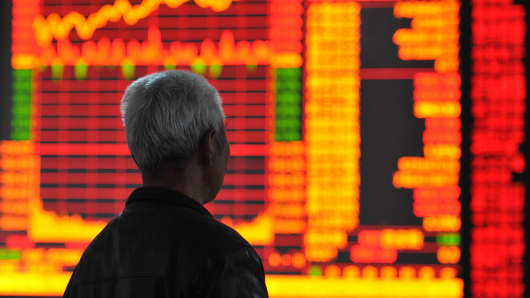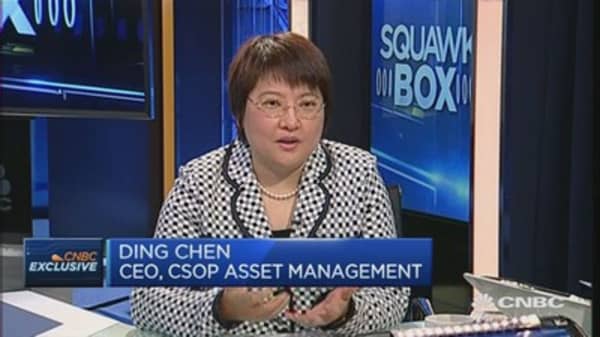
ChinaFotoPress | Getty Images
Investors observe stock prices in Huaibei, China.
This transition could perhaps have been massaged and supported if there was any monetary policy flexibility. But China has become indebted before it has developed. The proportion of debt to GDP is somewhere around 280 percent according to McKinsey. I say "somewhere" because the shadow banking system makes the exact number hard to be sure of. This is extraordinarily large for a country where GDP per capita is still relatively low and which is also embarking on one of the most challenging economic transitions the world has ever seen.
Read MoreChina firm insiders skim the cream off frothy stock market
Beijing has embraced important reforms, but it remains focused on hitting arbitrary growth targets to keep its increasingly irritable population satisfied. This type of robotic economic management has led to massive imbalances that at some point will pop. It means the liquidity taps are now, by necessity, always turned on, but are also having less and less effect. Everyone focuses on the slowing GDP rate, which is relevant, however it is the lending figures which highlight the pressing issue - they are pathetic given the stimulus that is being offered. For the long term, building up more debt is not desirable, but the point is that monetary policy is loose, and will get looser, but it is not even having a short-term effect anymore.
What I think is overestimated is the ability for China's growth to settle slowly from eight to seven to six per cent. Many companies in China are hugely inefficient having been carried by supernormal GDP growth and excessive state support. Will they all survive as growth slows? Probably not - there is a point where the transition is binary – companies continue or they go bust – they don't just make 1% less profit. Crunch point is getting closer.





